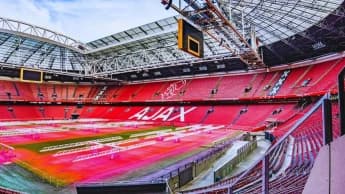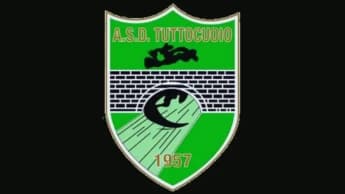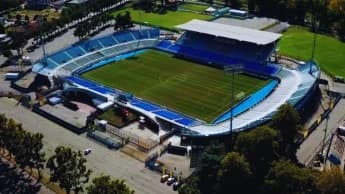
"At a pivotal moment in its rich history, Olympique Lyon confronts an unprecedented financial crisis, battling relegation fears and transfer bans while striving to reclaim its former glory on the footballing stage."
Olympique Lyon, a historically significant club in French football, finds itself at a pivotal moment, confronting a crisis of unprecedented scale that endangers its esteemed legacy. The Direction Nationale du Contrôle de Gestion (DNCG), the strict financial regulator in French football, has placed the club under provisional relegation to Ligue 2. Alongside this harsh penalty, Lyon is contending with a transfer ban and rigorous oversight of wages. These sanctions stem directly from the club's deteriorating financial state, as its debt has surged from €458 million to a concerning €508 million—a shocking rise that has prompted this drastic intervention.
Owner John Textor, who leads the American Eagle Football Group, remains publicly positive in spite of the challenging situation. He has recently submitted a recovery strategy to the DNCG, detailing various actions to tackle the club's financial difficulties. These actions include selling assets to meet urgent obligations, with suggestions involving the sale of players from Lyon and Botafogo—another club owned by the Eagle Football Group—as well as divesting a 45% stake in Crystal Palace, which is Textor's investment in the Premier League.
Nonetheless, the actions taken by the DNCG indicate doubt about the viability of these proposed solutions, leaving Lyon's short-term future steeped in uncertainty. Should the club fail to tackle its mounting financial issues, the consequences could be dire. Lyon might have to sell key players at significantly diminished prices, a scenario that would exacerbate their financial difficulties. Exceptional young talents such as Rayan Cherki, a 21-year-old midfielder for France's U21 team, and Malick Fofana, a promising 19-year-old winger from Belgium, are already viewed as likely candidates to be transferred during the forthcoming winter transfer window.
The possible departure of these promising players not only endangers the team's competitive power but also emphasizes the seriousness of Lyon's situation. Adding to these difficulties is the transfer ban, which restricts Lyon's ability to manage their squad and financial plans. Although the ban might be revoked if the club shows significant financial improvement, the timing of any such changes is unclear, and their effectiveness is anything but assured.
Lyon's previously lauded player trading strategy, a key aspect of their operations, now stands on the brink of transforming into a frantic effort for survival. Despite these difficulties, the team's performances on the pitch provide a slight glimmer of hope. Currently, they are positioned fifth in Ligue 1, close to securing a spot in the Champions League. Qualifying for European competition could yield the essential financial boost needed to stabilize the club.
If they were to lose essential players in the January transfer window, it would become considerably more difficult for Lyon to maintain their competitive edge. The club's current situation highlights a larger issue in contemporary football, where financial mismanagement frequently overshadows athletic ambition. For a team rich in history and success, this moment is pivotal. The upcoming months will be crucial in deciding whether Lyon can navigate through their financial difficulties or be overwhelmed by them, potentially altering the future of one of France's most significant football institutions.





